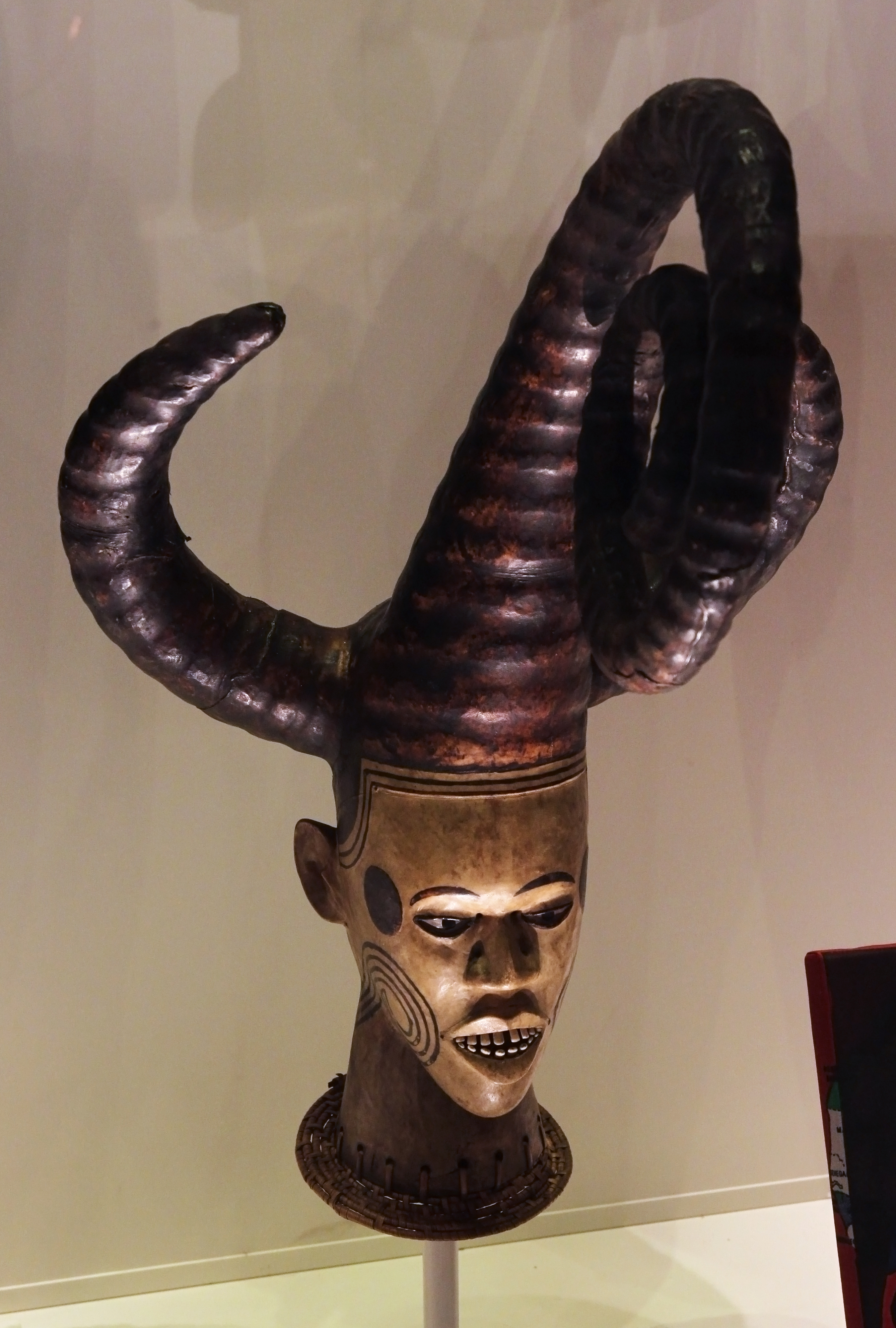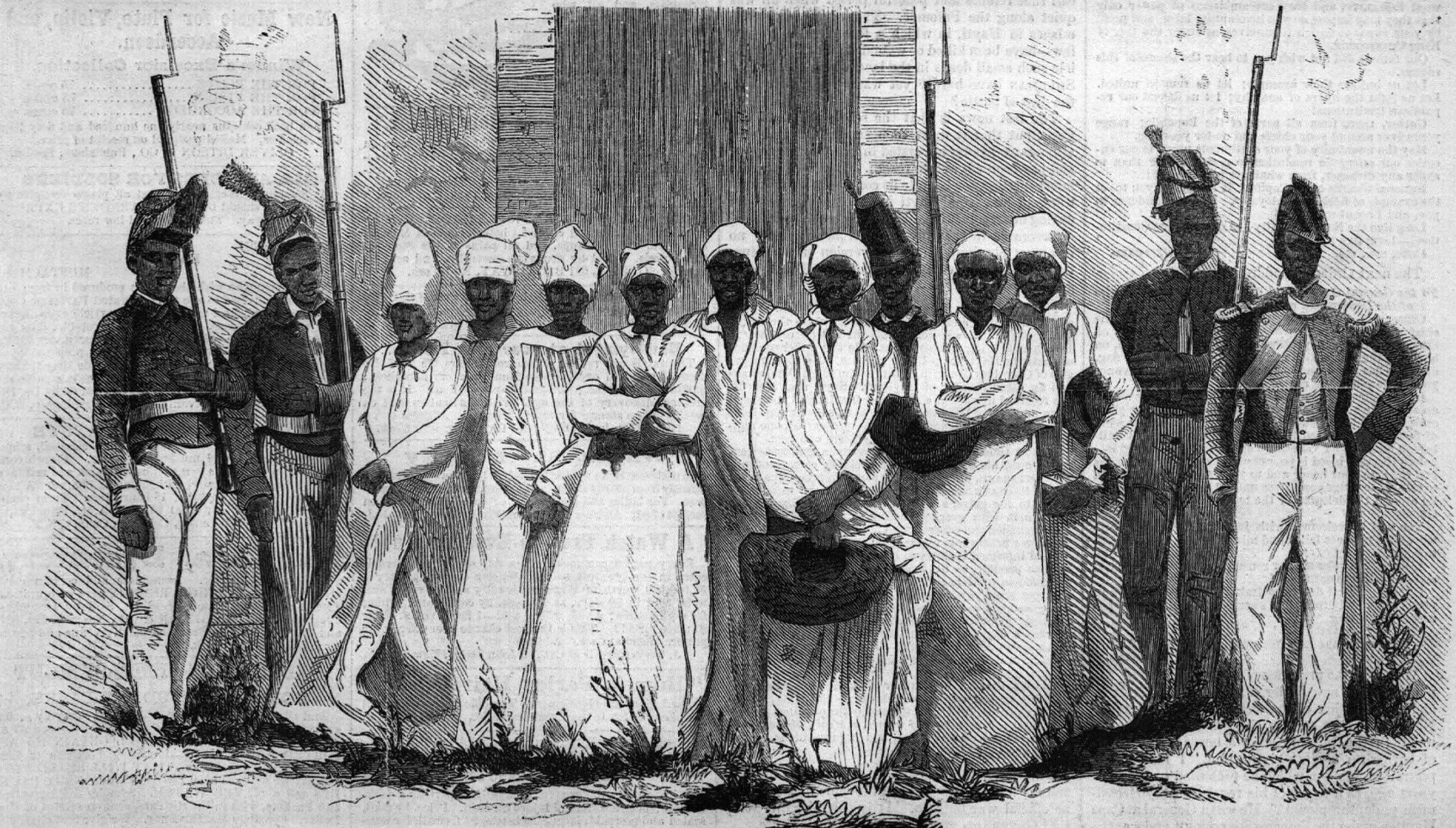|
Abakuá
Abakuá, also sometimes known as Ñañiguismo, is a Cuban initiatory religious fraternity founded in 1836. The society is open only to men and those initiated take oaths to not reveal the secret teachings and practices of the order. Members are typically known as Abanékues and are divided amongst lodges or chapters called ''juegos''. Abakuá derives largely from the Ekpe, Ékpè society of West Africa, but displays adaptations like the inclusion of Catholic Church, Roman Catholic symbolism. The society teaches the existence of a supreme divinity named Abasí who supplied humanity with a form of power which holds a central place in Abakuá's origin myth. Rituals are called ''plantes'' and typically take place in a secluded room, the ''fambá''. Many of the details of these ceremonies are kept secret although they usually involve drumming. Some of the Abakuá society's ceremonies take place in public. Most notable are the public parades on the Epiphany (holiday), Day of the Three ... [...More Info...] [...Related Items...] OR: [Wikipedia] [Google] [Baidu] |
Palo (religion)
Palo, also known as Las Reglas de Congo, is an African diasporic religion that developed in Cuba during the late 19th or early 20th century. It draws heavily upon the traditional Kongo religion of Central Africa, with additional influences taken from Catholicism and from Spiritism. An initiatory religion practised by ''paleros'' (male) and ''paleras'' (female), Palo is organised through small autonomous groups called ''munanso congo'', each led by a ''tata'' (father) or ''yayi'' (mother). Although teaching the existence of a creator divinity, commonly called Nsambi, Palo regards this entity as being uninvolved in human affairs and instead focuses its attention on the spirits of the dead. Central to Palo is the ''nganga'', a vessel usually made from an iron cauldron. Many ''nganga'' are regarded as material manifestations of ancestral or nature deities known as ''mpungu''. The ''nganga'' will typically contain a wide range of objects, among the most important being sticks and h ... [...More Info...] [...Related Items...] OR: [Wikipedia] [Google] [Baidu] |
Ifá
Ifá or Fá is a geomantic system originating from Yorubaland in West Africa. It originates within the Yoruba religion, traditional religion of the Yoruba people. It is also practiced by followers of West African Vodun and certain African diasporic religions such as Cuban Santería. According to Ifá teaching, the divinatory system is overseen by an ''orisha'' spirit, Orunmila, who is believed to have given it to humanity. Ifá is organised as an initiatory tradition, with an initiate called a ''Babalawo, babaláwo'' or ''bokɔnɔ''. Traditionally, these are all-male, although women have been initiated in Cuba and Mexico. Its oracular literary body is made up of 256 volumes (signs) that are divided into two categories, the first called Ojú Odù or main Odù that consists of 16 chapters. The second category is composed of 240 chapters called Amúlù Odù (omoluos), these are composed through the combination of the main Odù. They use either the divining chain known as ''Opele, � ... [...More Info...] [...Related Items...] OR: [Wikipedia] [Google] [Baidu] |
Ekpe
Ekpe, also known as Mgbe/Egbo ( Ekoi language: ''leopard''; derived from the Efik term for the same), is a West African secret society in Nigeria and Cameroon flourishing chiefly among the Ejagham. It is also found among a number of other ethnic groups, including the Efik and Bahumono of the Cross River State, the Ibibio, the Uruan and the Oron of Akwa Ibom State, Arochukwu and some other parts of Abia State, as well as in the diaspora, such as in Cuba and Brazil. The society is still active at the beginning of the 21st century, now playing more of a ceremonial role. There are two distinct but related societies. The primary society is located in the Cross River, Akwa Ibom and Arochukwu areas of Nigeria, and the secondary society consists of members from the Southern and Eastern Igbo groups of the same country. Ekpe ''Ekpe'' is a mysterious spirit who is supposed to live in the jungle and to preside at the ceremonies of the society. Members of the Ekpe society are sa ... [...More Info...] [...Related Items...] OR: [Wikipedia] [Google] [Baidu] |
Santería
Santería (), also known as Regla de Ocha, Regla Lucumí, or Lucumí, is an African diaspora religions, Afro-Caribbean religion that developed in Cuba during the late 19th century. It arose amid a process of syncretism between the traditional Yoruba religion of West Africa, Catholicism, and Kardecist spiritism, Spiritism. There is no central authority in control of Santería and much diversity exists among practitioners, who are known as ''creyentes'' ("believers"). Santería teaches the existence of a transcendent creator divinity, Olodumare, under whom are spirits known as ''Orisha, oricha''. Typically deriving their names and attributes from traditional Yoruba deities, these ''oricha'' are equated with Roman Catholic saints and associated with various myths. Each human is deemed to have a personal link to a particular ''oricha'' who influences their personality. Olodumare is believed to be the ultimate source of ''Aṣẹ, aché'', a supernatural force permeating the univers ... [...More Info...] [...Related Items...] OR: [Wikipedia] [Google] [Baidu] |
Efik Language
Efik (''Usem Efịk'') is the indigenous language of the Efik people, who are situated in the present-day Cross River State and Akwa Ibom State of Nigeria, as well as in the north-west of Cameroon. The Efik language is mutually intelligible with other lower Cross River languages such as Ibibio, Anaang, Oro and Ekid but the degree of intelligibility in the case of Oro and Ekid is unidirectional; in other words, speakers of these languages speak and understand Efik (and Ibibio) but not vice versa. The Efik vocabulary has been enriched and influenced by external contact with the British, Portuguese and other surrounding communities such as Balondo, Oron, Efut, Okoyong, Efiat and Ekoi (Qua). Classification The Efik Language has undergone several linguistic classifications since the 19th century. The first attempt at classifying the Efik language was by Dr. William Balfour Baikie in 1854. Baikie, p. 420 Dr Baikie had stated, "All the coast dialects from One to Old Ka ... [...More Info...] [...Related Items...] OR: [Wikipedia] [Google] [Baidu] |
Efik People
The Efik are an ethnic group located primarily in southern Nigeria, and western Cameroon. Within Nigeria, the Efik can be found in the present-day Cross River State and Akwa Ibom state. The Efik speak the Efik language which is a member of the Benue–Congo languages, Benue–Congo subfamily of the Niger-Niger–Congo languages, Congo language group. The Efik refer to themselves as Efik Eburutu, Ifa Ibom, Eburutu and Iboku.#refSimmons1958, Simmons, p.11 The bulk of the Efiks can be found in Calabar and the southern part of Cross River State. Prior to 1905, Old Calabar was a term used to describe the Efik settlements of Duke Town, Creek Town, Old town, Cobham town, Henshaw town, Adiabo and Mbiabo (consisting of Mbiabo edere, Mbiabo Ikot Offiong and Mbiabo Ikoneto).#refCotton1905, Cotton, p.302 The Efik have also been referred to as "Calabar people" in historical literature. The term "Calabar people" was particularly popular prior to the nineteenth century and was synonymous with th ... [...More Info...] [...Related Items...] OR: [Wikipedia] [Google] [Baidu] |
Víctor Patrício De Landaluze - Diablito
Víctor is a Spanish masculine given name, equivalent to Victor in English and Vítor in Portuguese. Notable people with the given name include: * Víctor Barrio (1987–2016), Spanish bullfighter * Víctor Cabrera (Argentine footballer) * Víctor Cabrera (Chilean footballer) * Víctor Hugo Cabrera, actor * Víctor Manuel Camacho, politician * Víctor Carrillo, football referee * Víctor Hermosillo y Celada, politician * Víctor Raul Díaz Chávez, politician * Víctor Casadesús, footballer * Víctor Emeric, politician * Víctor Espárrago, football coach *Víctor Fernández, football coach * Víctor Manuel García Valdés (1897–1969), Cuban painter * Victor Garcia (director) * Victor G. Garcia III, ambassador *Víctor García (Spanish singer) * Víctor García (Mexican singer) * Víctor Andrés García Belaúnde, politician * Víctor García (racing driver) *Víctor García (volleyball) *Víctor Garcia (Spanish director) *Víctor García (runner) * Víctor Hugo García, footba ... [...More Info...] [...Related Items...] OR: [Wikipedia] [Google] [Baidu] |
Havana
Havana (; ) is the capital and largest city of Cuba. The heart of La Habana Province, Havana is the country's main port and commercial center.Cuba ''The World Factbook''. Central Intelligence Agency. It is the most populous city, the largest by area, and the List of metropolitan areas in the West Indies, second largest metropolitan area in the Caribbean region. The population in 2012 was 2,106,146 inhabitants, and its area is for the capital city side and 8,475.57 km2 for the metropolitan zone. Its official population was 1,814,207 inhabitants in 2023. Havana was founded by the Spanish Empire, Spanish in the 16th century. It served as a springboard for the Spanish colonization of the Americas, Spanish conquest of ... [...More Info...] [...Related Items...] OR: [Wikipedia] [Google] [Baidu] |
Fon People
The Fon people, also called Dahomeans, Fon nu, Agadja and historically called Jeji (Djedji) by the Yoruba in the South American diaspora and in colonial French literature are a Gbe ethnic group.Fon people Encyclopædia Britannica, undated, 1.7 million population, Retrieved June 29, 2019 They are the largest ethnic group in Benin, found particularly in its south region; they are also found in southwest and Togo. Their total population is estimated to be about 3,500,000 people, and they speak the [...More Info...] [...Related Items...] OR: [Wikipedia] [Google] [Baidu] |







